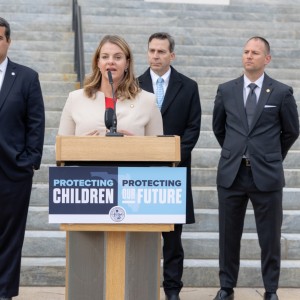Fiscal Neutrality Change Clears Commission Hurdle
Todays News
SRQ DAILY FRESHLY SQUEEZED CONTENT EVERY MORNING
THURSDAY AUG 28, 2014 |
BY JACOB OGLES
Amid the most intense debate yet regarding an update to the Sarasota 2050 Plan, Sarasota County commissioners late Wednesday evening voted to transmit changes to fiscal neutrality rules for state officials to review. But the commission also demanded county planners continue working to clear up language so members of the public fully understand how regulations in the future will be enforced.
"This change is not intended to make the developer pay less," said County Commissioner Christine Robinson. "It's to make measurements more acceptable and more reliable, and to make the ability to develop more reliable."
Fiscal neutrality rules in the 2050 plan require developments east of Interstate-75 in designated areas to show that infrastructure costs associated with a development are covered by the developer instead of shifting the burden to taxpayers. But business leaders say the language as it is written today makes projects impossible to finance because it requires neutrality reporting by phase. The change in language would allow a development in early phases not to be neutral in cost if the plan over the duration of all phases is neutral.
Pete Theisen, a write-in candidate for County Commission this year, said the change was a "sereptitious elimination of fiscal neutrality" altogether. "It wouldn't exist at all," he said. "What astonishes me is you haven't the sense to be embarassed."
County Commissioner Nora Patterson voted against transmitting the change, but did say the language was on the right track and was hopeful when the issue comes back to commissioners for final approval in October that all problems could be fixed. "You need to know you can build things in a development that will make it worthwhile to pay for the infratsructure," she said.
A number of conservation candidates came out to speak against the changes, and several business leaders came out in favor of the change. Dan Bailey, an attorney for Neal Communities, said the change in language was needed so lenders could feel confident about a project's viability. But Cathy Antunes, with the Council of Neighborhood Associations, said proposed changes could impact needed urban services and place long-term burdens on taxpayers.
Ultimately, commissioners said changes were needed to ensure the clustered development patterns originally envisioned in the 2050 visioning process eventually come to fruition, as opposed to the allowed one-unit-per-five-acres development pattern allowed without 2050 in place.
"We should remember that development not following 2050 is not fiscally neutral," said County Commissioner Joe Barbetta. "Not even close. Development of five-acre ranchettes is on the back of all taxpayers."
« View The Thursday Aug 28, 2014 SRQ Daily Edition
« Back To SRQ Daily Archive











